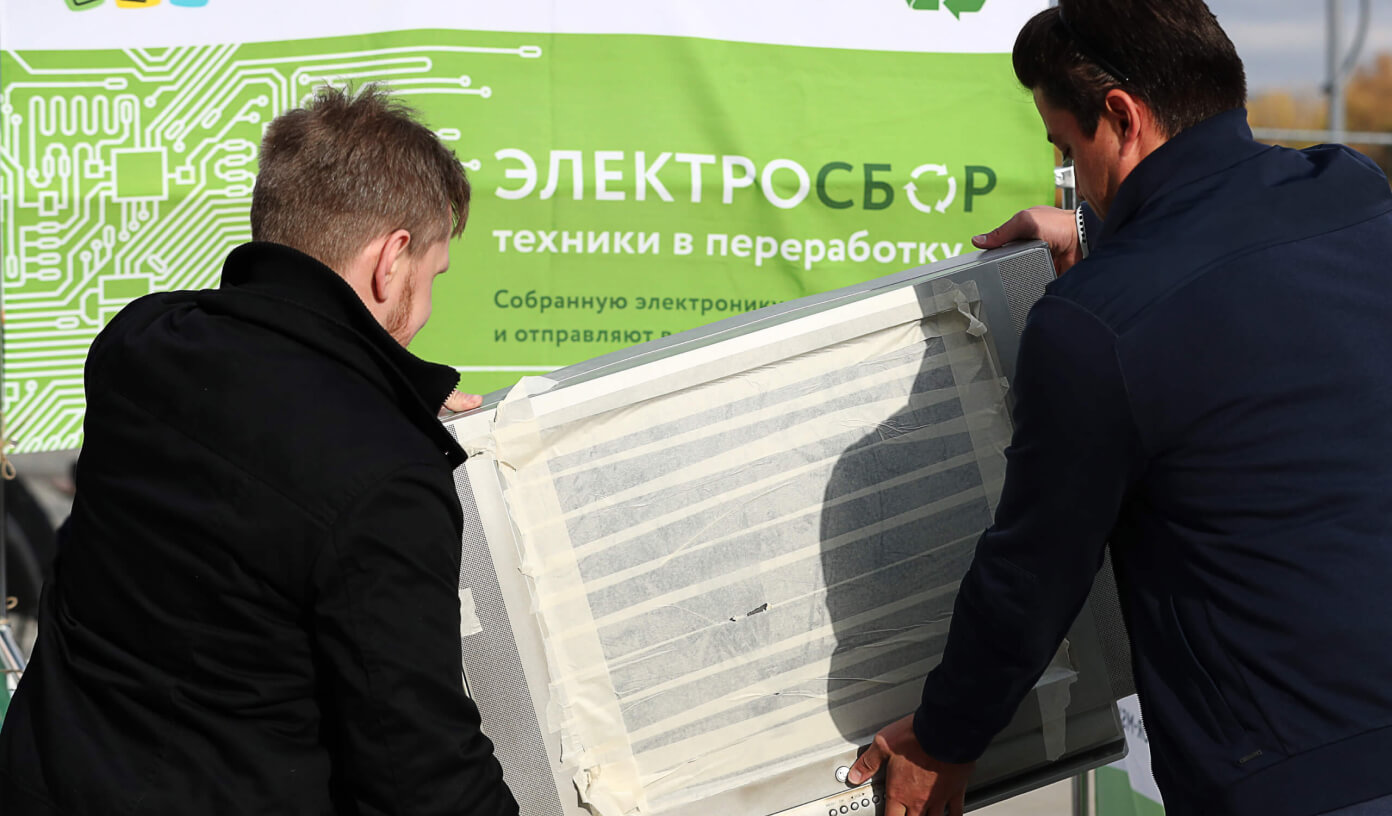Neither the pandemic, nor the economic crisis, nor Western sanctions, nor the reorientation of domestic exports towards China will be a reason for Russia to abandon the green transition. Let’s find out what makes it happen and at what pace the domestic industry will make it happen.
Russia and the green transition
The world economy is in crisis, born of the COVID-19 pandemic and exacerbated by anti-Russian sanctions. Commodity supply chains are disrupted, energy and food prices are rising, inflation has reached multi-year highs, and borrowing, debt risks and financing costs continue to rise in global markets. However, this is no reason to abandon the climate and environmental agenda — including for Russia.
No one in Russia is giving up on plans to make the green transition. The low-carbon development strategy of the Russian Federation, adopted in autumn 2021, sets the goal of achieving carbon neutrality by 2060. By this time, carbon emissions should be minimised and the remaining emissions should be offset by optimising the management of the country’s green resources, for example through the restoration of forests, wetlands and other ecosystems.
According to Oleg Pluzhnikov, Director of the Center for Green Economy and Climate at VEB.RF, with the onset of the new reality all the necessary points of growth to implement these plans remained. Among the key ones, the expert singles out three: the development of hydrogen energy and transport using hydrogen fuel, improving energy efficiency in all areas — from energy to industry, as well as the development of solar and wind energy — primarily in coastal and mountainous areas, in the Far East and in the South of Russia.
“For the Russian economy and society the problems of ecology and climate remain important,” Sergey Sementsov, Deputy Head of the Center for Sustainable Development of the VEB.RF Institute, is convinced. — There is an understanding that industry can be modernized only on the basis of energy- and resource-efficient technologies, that the development of the country is unthinkable without abandoning technologies and production facilities destroying nature and killing people.
So, Russian business is well aware of this. For example, at the March 2022 Clean Country Forum, representatives of Norilsk Nickel, Rusal, and NLMK made it clear: environmental modernization programs will be financed and implemented this year and next.
The state supports green transition — and has no plans to cancel support
An important component of the green transition is its support at the state level. According to presidential aide Maxim Oreshkin, the country’s government is interested in making Russia’s economic growth as environmentally friendly as possible. That is why in September 2019, Prime Minister Mikhail Mishustin signed a decree approving the criteria for companies launching “green” projects to receive preferential financing.
Alexei Miroshnichenko, deputy head of VEB.RF, explained that the document aims to support initiatives that improve the environmental situation in at least one area (such as reducing greenhouse emissions) while not worsening the other areas. Thanks to this support, Russian business today is not giving up on green transition projects.
In particular, not a single investment project in the field of renewable energy has been cancelled, says Alexei Zhikharev, director of the Renewable Energy Development Association (ARVE). According to him, due to preservation of all state support measures, the industry will develop at a fast pace. In particular, the program of state support of renewable energy “DPM RES 2.0”, which covers the period till 2035, has not been cancelled and will be fulfilled in full. Its total financing will amount to 360 billion rubles.
“Confidence that all projects will be implemented remains. According to our forecasts, despite the current situation, the total capacity of RES generation will quadruple by 2035, reaching 20 gigawatts,” the expert says. The growth rate will be 1 gigawatt per year — including through industrial sector projects. “By 2050, cumulative generation could increase 20 times over the current period,” Mr. Zhiharev sums up.
 Photo by: martinhosmart / iStock
Photo by: martinhosmart / iStock
Trade with China does not eliminate the need for a green transition, but rather stimulates it
The reorientation of the country’s economy toward Asian markets does not diminish the importance of the green transition for Russia. It is now happening because Western “partners” refuse to cooperate with Russia. There is a widespread opinion: the West had “green” priorities, and developing Asian countries simply do not have them, which means that we have fewer incentives for the green transition. However, this, to put it mildly, does not correspond to reality.
Firstly, not all Russian players have left western markets. Some, in particular producers of agricultural products and fertilisers, still remained, including in the European market. This means that they still managed to adapt their business to high ecological standards. Unless, of course, Europe abolishes them amid the socio-economic collapse into which it is driving itself by refusing Russian energy resources.
But the general reorientation of the country’s economy towards Asian markets has not at all diminished the importance of “greening” for Russia. Despite rising commodity prices and multi-year highs in global inflation, the transition to a low-carbon economy remains a priority for leading Asian countries.
The most striking example is Russia’s largest eastern partner, China. Now it is the country with the largest volume of carbon emissions in the world (27% of global carbon emissions). However, under the current policy of the country’s leadership, China’s emissions are projected to peak as early as 2030, and by 2060 the Celestial Empire plans to achieve carbon neutrality.
“The markets that Russia continues to work with are stepping up the low-carbon rhetoric, focusing on carbon footprint accounting and the problem of reducing it,” says Alexei Zhikharev, director of ARVE. According to him, our country’s partners will be interested in products that have a green footprint.
“Environmental issues are a priority for China, resource efficiency is also a priority,” emphasizes Anna Golysheva, a leading expert at the Center for Sustainable Development of the VEB.RF Institute. — The main tasks of China today are reduction of environmental pollution, energy efficiency and development of non-hydrocarbon energy.
According to Igor Korotetsky, head of the sustainable development group in the audit and consulting company Kept, in the near future Asian countries will begin to impose requirements similar to the carbon tax that the European Union will introduce from 2026. Therefore, the trend of “greening” the business will continue, despite the sanctions, the expert summarizes.
Oil and gas production as well as chemical production are the fastest turning green industries in Russia
The fact that the domestic industry is “greening” in practice can be judged by the results of a recent study by experts of the Center for Conjunctural Research of the Institute of Statistical Research and Knowledge Economics of the Higher School of Economics “Green Technology in Industry: GreenTech Trends in 2021-2022”. The sample included 1158 large and medium-sized industrial enterprises from 30 regions of the Russian Federation, representing eight federal districts.
In order to show in which industries “green” technologies are implemented most actively, the Higher School of Economics developed an index of eco-investments, calculated in points. The highest values were demonstrated by companies producing chemicals and products (48 points), as well as crude oil and natural gas production (45 points). The lowest values were shown by companies in coal mining (20 points), food production (17 points) and beverages (16 points).
By the way, the environmental friendliness of enterprises is not always supported by documents: only 47% of the companies surveyed had environmental certificates, while 53% did not have them. 18% had certificates recognized at the national level and 15% had certificates compliant with international legislation. 14% of the companies are certified according to the international standard ISO 14001, which guarantees a minimal environmental impact in the production of products.
Among the subjects of the study, the leaders in the level of ecoinvestment in industrial enterprises were Tyumen (57 points), Voronezh (56 points), Sverdlovsk and Vologda regions (53 points each), as well as Moscow (54 points). The most lagging behind were the Belgorod and Chelyabinsk regions (12 and 11 points), the Republic of Dagestan (11 points) and Khabarovsk Territory (10 points).
 Photo by: Mikhail Tereshchenko / TASS
Photo by: Mikhail Tereshchenko / TASS
Energy efficiency and waste management are the most popular “green” trends in Russia
The survey evaluated the popularity of “green” technological areas. It turned out that the industry is most interested in energy efficiency and waste management (technologies in each of these areas were introduced in 21% of the surveyed enterprises), as well as in improving the efficiency of water and raw materials (16%). The least widespread so far are the expansion of the electric transport fleet (which only 4% of companies are engaged in) and the transition to renewable energy sources (2%).
The popularity of certain eco-directions varies by industry. For example, digital technologies for waste disposal are most often implemented by manufacturers of medicines and medical materials (54% of all companies in this industry), energy efficiency — by clothing manufacturers (38%), technologies for efficient use of water and raw materials — wood processing companies (32%).
Interestingly, in Russia, technologies to improve the efficiency of greenhouse gas emissions and pollutants are not yet very popular — they are most often used at enterprises processing wood (16%), as well as in the clothing and leather products industries (10% each).
Environmental protection and compliance with standards are the main incentives for turning green the Russian business
Finally, the authors of the survey determined what motivates the management of industrial enterprises to implement “green” technologies. The most popular answers to this question were “reducing the impact on the environment” and “compliance with environmental, health and safety standards” — these were chosen by 51% of respondents. At the same time 48% admitted that they pursue the goals of “improving product marketing”, 46% — “reducing the energy intensity of products”, and 44% — “reducing the resource intensity of products”.
Certain industrial sectors are more aware of the benefits of eco-technology than any other. These include beverage production, food products, finished metal products, and wood processing. In these industries, 50% or more of respondents selected each of the five benefits listed above.
Interestingly, for each benefit almost half of the respondents (42% to 47%) found it difficult to assess how important it is to them. According to the study’s authors, this indicates that a significant portion of Russian companies still lacks a clear motivation to green their production. However, the number of such companies is not much, but still less than half. So, as we might think, the green transition in Russia is going to happen.
Author: Ivan Bolotov
Cover photo: lovelyday12 / iStock








Comments